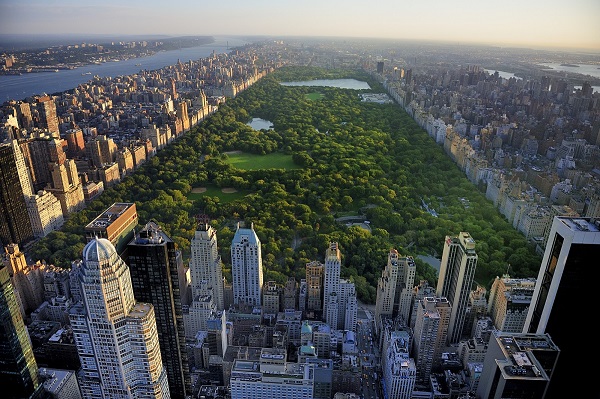
New York City, that crown jewel of the American metropolis, may well be the most liberal, diverse and secular place in the nation. So why don’t we have any atheists elected to public office?
That’s the question posed by this article on City & State New York
But even in New York City, there may be one religious line which politicians are not willing to cross: godlessness. Based on a dozen conversations with City Council members, staffers and others in the political world, there don’t seem to be any city politicians, whether on the 51-member Council or in the three citywide positions, who are “out” atheists who do not believe in God or any higher power.
Granted, New York City isn’t the swirling vortex of godlessness that red-state preachers would have you believe. According to the Public Religion Research Institute, about 25% of New Yorkers identify as unaffiliated or none-of-the-above, which is just slightly higher than the national average. Pew finds similar numbers and breaks it down at 5% atheist, 5% agnostic, and the balance as “nothing in particular”.
It’s not as if religion has no presence here. Even here, you can find great cathedrals of multiple denominations. Even here, you can find churches that openly attack atheism. New York as a whole is somewhat more Catholic, significantly more Jewish, and much less evangelical than the nation as a whole. Our vaunted liberalism isn’t because atheists dominate over everyone else, but because all New Yorkers, not just the nonreligious ones, lean that way.
Still, simple demographics would predict we’d have at least a few nonbelieving elected officials, and there don’t seem to be any, at least none willing to go on the record. (The article did find a city councilman, Ritchie Torres, who identifies as a “cultural Catholic” and a deist.) The answer may boil down to expediency and caution:
“Even in a city as liberal as New York, it’s still seen as somewhat perilous to self-identify as an atheist in politics,” said City Councilman Mark Levine, who said he strongly identifies as Jewish.
New York City Public Advocate Letitia James, a self-described “church girl,” agreed that atheism could pose a problem in an election. “I know in some constituencies, that would cause an issue,” she said. “That would be a major issue.”
Although there are more conservative and more religious parts of the city where it might hurt a candidate, I speculate that coming out as an atheist probably wouldn’t matter in most of New York. But no one wants to be the first to find out. It’s safer to make the conventional choice and to claim a label that people find less objectionable.
A possible case in point is Mayor Bill de Blasio. He’s from an Italian and Catholic family and says he’s been influenced by Christian liberation theology, but he’s one of the “nones” who isn’t affiliated with any church. He describes himself as spiritual but not religious, a time-honored tactic of the shy and the excessively diplomatic who don’t want to antagonize anyone by saying they don’t believe in God. Politicians who want to court the believing vote would definitely fit that category.
If any major figure in NYC politics turns out to be an atheist, I’d be least surprised if it was de Blasio. In that respect, he reminds me of Barack Obama, another Democrat whose religious identity seems to be cursory at best. (That said, I’m disappointed in him for backing down on regulating ultra-Orthodox circumcision, which was an early promise that was one of the first things I liked about him.)
And other people seem to think so too. When de Blasio ran for mayor the first time, in 2013, the Republicans sent vans to broadcast on a loudspeaker, “Bill de Blasio says he doesn’t believe in churches and he doesn’t believe in God either.” That tactic went nowhere, and Joe Lhota, the Republican nominee, hastily disavowed it.
As the failure of this tactic shows, one thing about New York is that the saliency of religion, as a political issue, is low here. That’s what always happens: secular groups thrive in deep-red states, where freethinkers feel a natural need to band together for mutual support. In liberal, diverse blue cities, there’s not as much of a call for firebrand atheism, at least not on the local level.
Paradoxically, this can make nonbelieving politicians more cautious, not less. Without a dedicated atheist constituency ready to come out in support, there just isn’t much to gain if a politician takes the chance of outing himself or herself.
To be clear, I’d be very happy to see New York elect a mayoral candidate or a city council member who was openly atheist. But I wouldn’t be surprised if atheist politicians tend to do better where religion is more dominant – because that creates an obvious enemy and a compelling reason for activism, which can weld nonbelievers into the well-organized, motivated force that can swing an election.